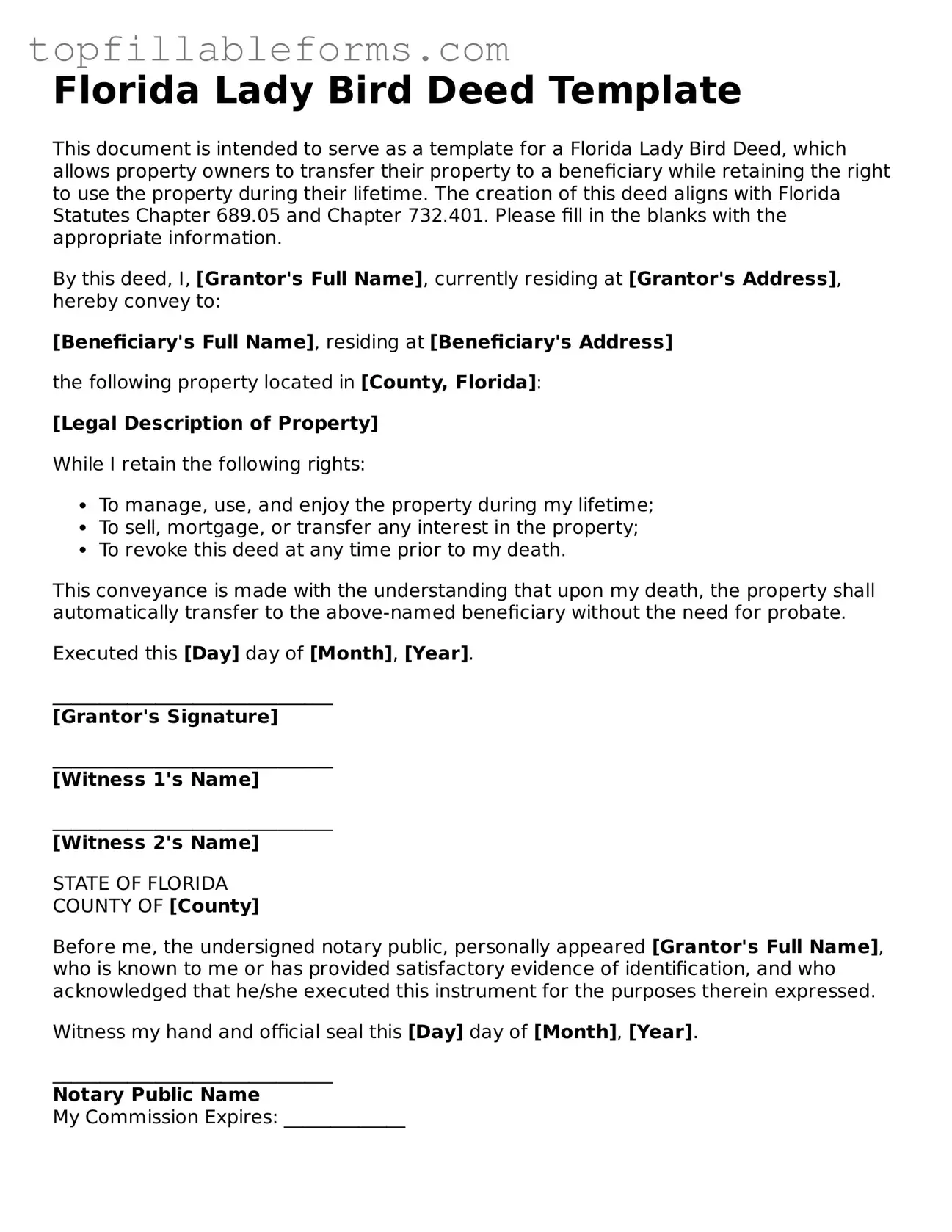Attorney-Verified Lady Bird Deed Template for Florida
The Florida Lady Bird Deed is a unique estate planning tool that allows property owners to transfer their property to beneficiaries while retaining control during their lifetime. This deed offers flexibility and can help avoid probate, making it an attractive option for many. Understanding its benefits and requirements is essential for effective estate planning in Florida.
Open Lady Bird Deed Editor Here

Attorney-Verified Lady Bird Deed Template for Florida
Open Lady Bird Deed Editor Here
Finish the form now and be done
Finish your Lady Bird Deed online by editing, saving, and downloading fast.
Open Lady Bird Deed Editor Here
or
▼ PDF File
